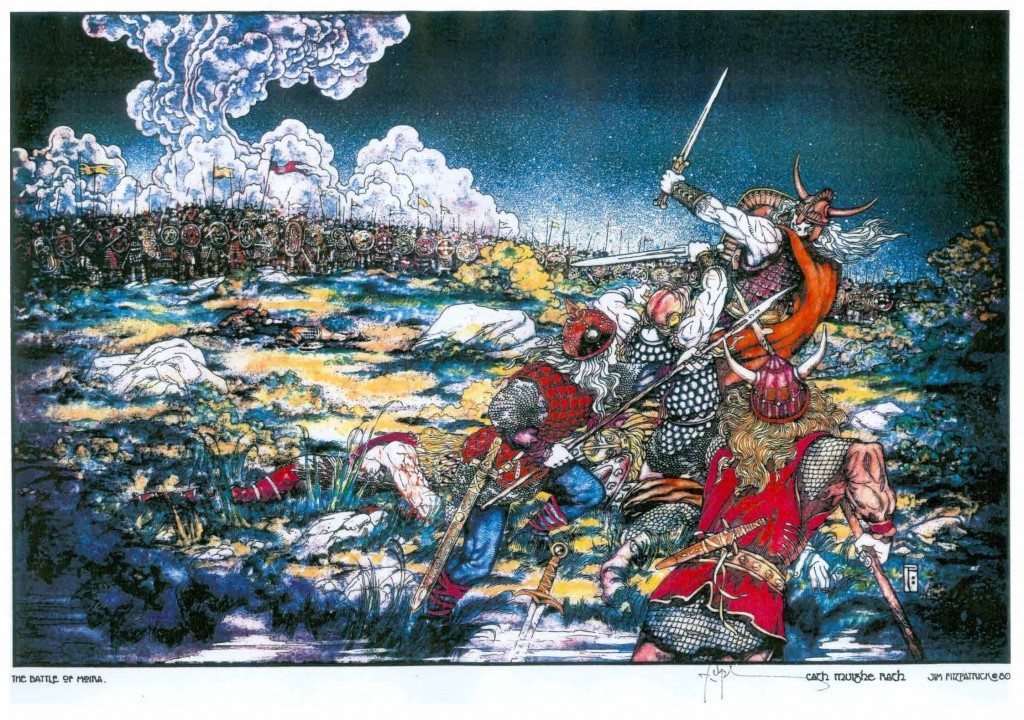The Dalaradia community organisation was formed in County Antrim several years ago as a way of engaging working class loyalists in the peace process. Although key members were involved in enabling the peace process to occur and in facilitating decommissioning, many members and associates had not bought into the process and saw no benefits to their community.
The first official representation of Dalaradia was in 2011 at Belfast City Hall when the chairman of the group was co-opted on to the (Grand) Ulster Centenary Committee, of which I myself was founder chairman, to organise the forthcoming decade of events. This has involved the highly successful Balmoral Review and the Centenary of the founding of the original UVF at Craigavon House and the West Belfast UVF at Fernhill House. Key members of Dalaradia were previously involved in founding the Loyalist Commission after the loyalist feud, meeting with all loyalists, MLAs, Clergy and Secretaries of State.
In 2011, members of Dalaradia went on a week-long trip to the Somme on an inter-community basis to try to give everyone involved a deeper understanding of this key period of history. Individuals who took part in that project have remained in touch. Although the Somme was paramount in their minds, they were eager to engage with people from across the board within a Common Identity logic to move towards a shared future. Thus I have accompanied them both to Crew Hill, Glenavy, to see the site of the inauguration stone of the Kings of Ulster and, in liaison with Brian Ervine, who has a particular interest in the area, came with them on a Caledonian “Scottish” Dalriada Residential, which was inter-community, to Argyll in September 2013.
Similarly, the group, who meet at the Hubb on the Shore Road, North Belfast, have recently visited the Bogside Bloody Sunday Museum, the Orange Museum and Derry’s walls. The Hubb is the last Second World War Civil Defence Hall left in Northern Ireland and was preserved mainly due to the fundraising efforts of local community worker, Jim Crothers.
Dalaradia (Dál nAraidi in Gaelic)— which should not be confused with Dál Riata, Latinised as Dalriada –was a kingdom of the Cruthin ( Cruithni in Gaelic ) in the north-east of Ireland in the first and early second millennia. The lands of Dalaradia appear to correspond with the Robogdii of Ptolemy’s Geographia, a region shared with Dál Riata. Fiachu Araide was their eponymous founder. It was centred on the northern shores of Lough Neagh in southern Antrim and included modern Belfast. Its kings contended with the Dál Fiatach of North Down for the high-kingship of Ulster for some centuries. One of their greatest kings was Congal Clane, who died at the Battle of Moira in 637. Belfast first enters history at the Battle of Bel Feirste in 667 between the Ulidians of Dal Fiatach and the Cruthin, where Cathasach, son of Laircine, son of Congal Clane, was slain. This was an attempt by the Ulidians to encroach on the Cruthin territory of Trian Congail. the “third of Congal”, which encompassed territory on both sides of the Lagan, corresponding more or less to Upper and Lower Clandeboye, including modern Belfast. Cathasach was Congal’s grandson. The battle was the first mention of Belfast in Irish history.
Its members see Dalaradia as a broadly Ulster-Scots body open to all aspects of our culture relating to all who share our land. They have moved beyond the two traditions’ frame, developing strong links with the Polish community who have become an integral part of the ever-broadening tapestry of Northern Ireland society. They are also determined to learn from other people’s experience of divided societies. Thus, in 2012 the chairman was one of a small group of senior loyalists who visited Israel to study the conflict there, engaging with Israelis, Palestinians, universities and Kibbutz, military and UN personnel. They will also facilitate the formation of a Dal Fiatach Group in North Down, complimenting their own group as well as the Kingdom of Dalriada group in North Antrim, linked to the Ullans Centre in Ballymoney, County Antrim.
